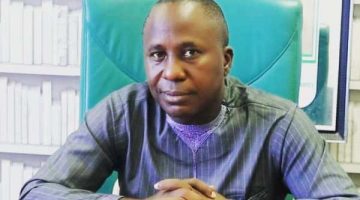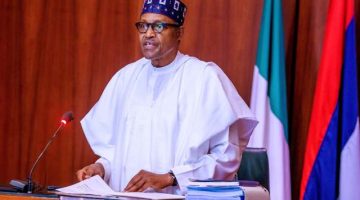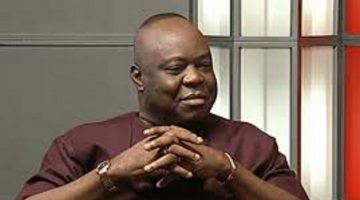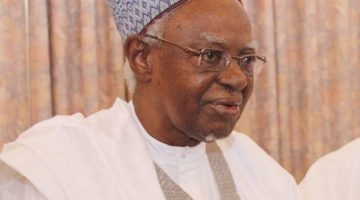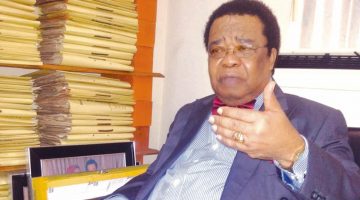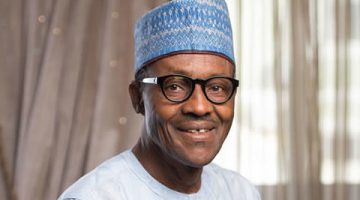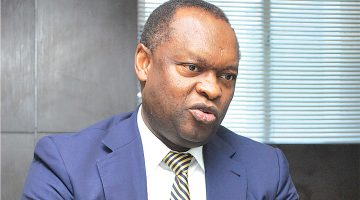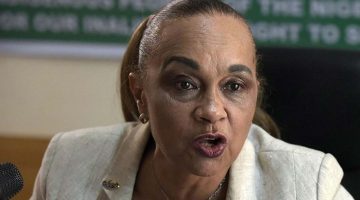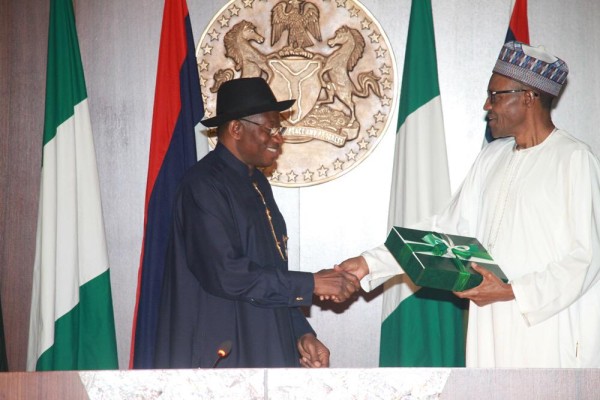By Prof. Steve Azaiki
President Muhammadu Buhari, who has just been sworn-in, ended his last public assignment 16 years ago, when he voluntarily resigned as Chairman of the Petroleum (Special) Trust Fund (PTF). That was on the eve of the take-off of the Fourth Republic with the handover of power by the last military regime of Gen. Abdulsalami Abubakar.
Those who, therefore, measure Buhari solely by his tour of political duty as military head of state in 1983-85 often miss out on some critical lessons that Buhari most probably learnt during and after his PTF years.
The Nigerian elite were vociferous in calling for the dismantling of the PTF, branding it a parallel government, and arguing that line Ministries should be funded with the PTF resources, to deliver on their statutory mandates.
Perceptible persons, who had gauged the results of PTF, urged caution in the hysterical demands to jettison the interventionist agency. Rather than discard PTF, a creature of the late Gen. Sani Abacha, more sober voices urged the civilian administration of Chief Olusegun Obasanjo, which was then to assume power in 1999, not to discard PTF, but instead reduce its scope of intervention to infrastructure delivery.
In the end, PTF was wound up, not without controversy among some of its undertakers, but the Federal Roads Maintenance Agency (FERMA), which emerged much later, was neither in a position to deliver on roads nor even to be anywhere near what PTF had achieved.
The one obvious question from the foregoing is: Do not cut your nose to spite your face. Buhari has come into office now on the mantra of change. But he can be certain that the campaign rhetoric, which permitted the unrestrained and unrelenting castigation of the administration of erstwhile President Goodluck Jonathan, does not, and should not imply, that everything, or even most things, done by the Jonathan government must be changed.
It appears to me that Buhari’s best bet is to adopt a philosophical disposition that flows naturally from his public acknowledgement of former President Goodluck Jonathan’s rightful place in Nigeria’s political history.
Former President Jonathan’s good deeds do not reside alone in his patriotic and selfless management of the electoral reforms that have brought about a new dawn in our polity. In several other spheres of our national life, the Jonathan administration had begun, or completed programmes, policies, and projects with positive consequences that many choose to forget, having been bombarded with the negative election propaganda by what was then the opposition party. This is why President Buhari should carefully, and on his own (not by assignment to even his trusted aides), study the handover notes given to him by his predecessor.
In the notes, Buhari will find a succinct statement of the state of the nation. Those notes are a distillation of the bulkier notes prepared by the out-going transition team and handed over to the President-elect’s transition team headed by Alhaji Ahmed Joda.
Mistakes, remedies
Although the handover notes cover the Jonathan Presidency, they, in fact, encapsulate the country’s governance experience since 1999. The notes contain the goals and efforts, the mistakes and remedies, the successes and challenges, as well as tips and hints on an agenda for the future. The notes, therefore, roll into one the Obasanjo, Yar’Adua, and Jonathan administrations.
In studying the succinct handover notes, Buhari will discover that there is no point reinventing the wheel. Governments spend so much time trying to carve an identity for themselves, they lose time and goodwill in the process, and leave undone an array of projects and programmes.
President Buhari will discover that the handover notes deal with the areas which he says will engage the attention of his administration: anti-corruption, unemployment, insecurity, and the economy at large. To achieve speedier and more enduring results, Buhari will find wisdom in taking his bearing from where his predecessor left off.
For instance, you cannot pursue employment generation through agriculture and seek to ignore the gains and roadmap set by the preceding administration, nor can you ignore the goal of food security so relentlessly pursued in the last few years. Can you fix the economy and create more jobs without industrialisation? Check out the Nigeria Industrial Revolution Plan of the Jonathan years. Can you drive the economy without investment in infrastructure? Check out what had been achieved in road, rail, and aviation—not just in terms of projects, but essentially the legal and policy frameworks.
New gameplan
The Jonathan administration had also achieved milestones in the power sector. If Buhari were to start afresh, by abandoning what went on before, he would superintend the building of so many new power plants, work out ownership arrangements, indeed restructure the power sector. How many years does he have? And can he afford the political cost (of continuing darkness) while he tries out his own brand new gameplan? Even in the petroleum subsector, which has attracted the most negative comments about the immediate past administration, Buhari will find that there were also new frontiers, and that he does not need to throw out the baby with the bath water, no matter how odiferous the water is.
But, why did I advise that Buhari should personally study the succinct handover notes, rather than by proxy? It is probably the best armour he has, as well as the best source of his bearing that will enable him focus on the areas he has isolated to tackle frontally during his years in office. Make no mistake about; Buhari will be bombarded with all kinds of ideas, proposals, and suggestions—and these are by persons who are outsiders pretending to know more than the insiders.
These may also be persons who lost out in earlier schemes and are desirous of getting into the new groove. Some will advise the President to jettison what went on before, and present him with new templates that are either conflictual or would amount to reinventing the wheel. If Jonathan had been re-elected, a good many of such proposals would have been untenable.
However, by arming himself with knowledge from the handover notes, Buhari will be better positioned to interrogate some of the proposals he will definitely be bombarded with. It will also help Buhari if he creates a back channel of communication with whoever served in the previous administration, to help explain, clarify, or put in perspective any matter arising from the past and especially as the new influence peddlers sneak in to the President to sell their ideas.
I am making these propositions, not because I was an insider in Jonathan’s administration. I was not. I did not belong to his kitchen cabinet; I did not run any parastatal under his government, nor did I serve on any committee set up by his administration. I am making the suggestions based on my experience with statecraft at the state level, and my studious observation and analysis of governance at the federal level over the years.
No booby-traps
On May 28, Jonathan also handed to Buhari a copy of the Report and 600-plus Recommendations of the National Conference of 2014. The President should view the National Conference Report and Recommendations the same way he has regarded Jonathan and his selfless contribution to Nigeria’s political and democratic maturity. In particular, Buhari should ask himself whether former President Jonathan was the kind of person who would lay booby-traps for him.
Buhari might find the answer to that question by carefully examining Jonathan’s action in withholding his assent to the 4th Alteration Bill of the 1999 Constitution, and even proceeding to the Supreme Court, to seek judicial intervention. And yet, that was a President on his way out of office, and, therefore, had nothing to lose, as a number of the clauses in the 4th Alteration Bill sought to erode the powers of the President and vest same in the legislature, among other objectionable provisions.
Already, some irridentists are urging Buhari to disregard the National Conference Report and Recommendations. But in this poor advice none has articulated any position that the Report and Recommendations were self-serving for former President Jonathan, who convened the Conference and was widely applauded by the Conference leaders and participants that he did not interfere with the proceedings or outcome of the Conference.
The 2014 National Conference was by far more eagerly attended, and by first-elevens, than the Political Reform Conference of President Obasanjo in 2005, which collapsed upon rejection of the third term bid. Nor was the 2014 National Conference anything like the 1994-95 Constitutional Conference organised by the military regime of Gen. Abacha. Buhari will hear, loud and clear, the voices of Nigerians in the Conference Recommendations. He will hear the yearnings of Nigerians.
If Buhari hearkens to the voices, he and the nation will have peace in the long run, even after the current honeymoon with his new administration is over. Buhari does not need to organise another Conference, nor should he ignore the outcome of the 2014 National Conference. Former President Jonathan set up a Committee to streamline the 600-plus Recommendations of the 2014 National Conference, into Policy, Legal, and Constitutional reforms.
These were approved by the Federal Executive Council, and then forwarded to the National Assembly. Buhari should study this and use it as his article of engagement with the National Assembly.
The 7th National Assembly concluded its business with the matter of the 4th Alteration to the 1999 Constitution in abeyance. But the matter will be revived in the 8th Assembly. Would Buhari want to treat it as a sole issue, or take the option of looking at the relevant Recommendations of the 2104 National Conference that have implications for constitutional amendment, and graft these into a new 4th Amendment Bill? That, I think, is the way to go.
* Azaiki is Chairman, National Think Tank.


